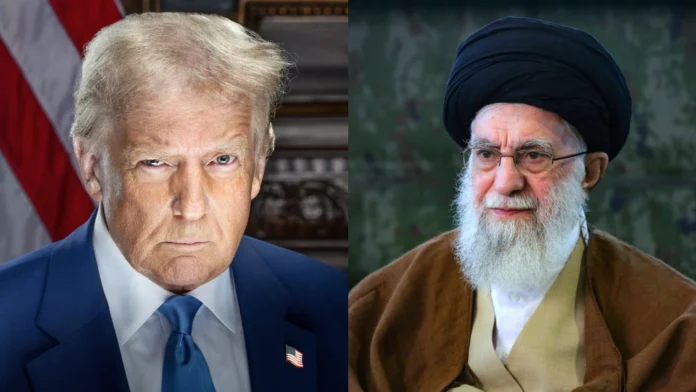In a notable shift in tone, U.S. President Donald Trump has signaled a willingness to engage directly with Iran’s leadership, including Supreme Leader Ayatollah Ali Khamenei or newly elected President Masoud Pezeshkian, in pursuit of a new nuclear agreement. However, he also cautioned that failure in negotiations could lead to war.
Trump expressed cautious optimism about reaching a deal with Tehran. When asked if he would meet with Khamenei or Pezeshkian, he replied, “Sure,” suggesting a potential break from precedent by engaging Iran’s top leadership.
This comes as U.S. and Iranian officials prepare for another round of nuclear talks in Oman, following earlier discussions aimed at curbing Iran’s nuclear program in exchange for sanctions relief. The Trump administration has reportedly proposed a compromise resembling the UAE’s nuclear model allowing Iran to maintain a civilian nuclear program but requiring it to rely on imported enriched uranium rather than domestic production.
Secretary of State Marco Rubio emphasized that such a deal would permit peaceful nuclear energy while preventing Iran from enriching uranium itself. “If Iran wants a civil nuclear program, they can have one just like many other countries,” Rubio stated, reiterating that Tehran must source enriched uranium externally.
However, Iran has resisted this condition, with senior official Ali Shamkhani rejecting the “UAE model” in previous talks. Tehran’s nuclear advancements since the collapse of the 2015 Joint Comprehensive Plan of Action (JCPOA) have heightened tensions Iran is now enriching uranium to 60% purity, nearing weapons-grade levels.
Despite recent limited cooperation with the International Atomic Energy Agency (IAEA), Iran has not slowed its enrichment activities, fueling Western concerns about its nuclear ambitions.
Trump’s remarks also touched on Israel’s stance, with Prime Minister Benjamin Netanyahu advocating for the complete dismantling of Iran’s nuclear program. While Trump denied blocking Israeli military action against Iran, he indicated a preference for diplomacy but warned, “If we don’t make a deal, I’ll be leading the pack.”
Critics note that Trump’s approach mirrors his earlier “maximum pressure” strategy, blending limited engagement with threats of force. He dismissed fears of being drawn into an Israel-Iran conflict, stating, “He [Netanyahu] may go into a war. But we’re not getting dragged in… I may go in very willingly if we can’t get a deal.”
The geopolitical stakes are further complicated by Trump’s upcoming Middle East tour, including stops in Saudi Arabia, Qatar, and the UAE. He claimed Riyadh is prepared to invest $1 trillion in the U.S. and may join the Abraham Accords, which normalized relations between Israel and several Arab states during his presidency.
Trump also blamed the Biden administration for Iran’s resurgence, arguing that lifted sanctions allowed Tehran to fund proxy groups like Hamas and Hezbollah. “Iran was broke under Trump,” he said. “When Biden came and took off all the sanctions… they started funding terror again.”
As talks resume, the coming weeks could prove pivotal. Trump’s dual approach—offering diplomacy while threatening military action sets the stage for a high-stakes showdown. Whether Tehran will accept restrictions on its nuclear program or escalate tensions remains uncertain, but the situation carries significant risks and potential consequences.
For more political updates, visit DC Brief.


